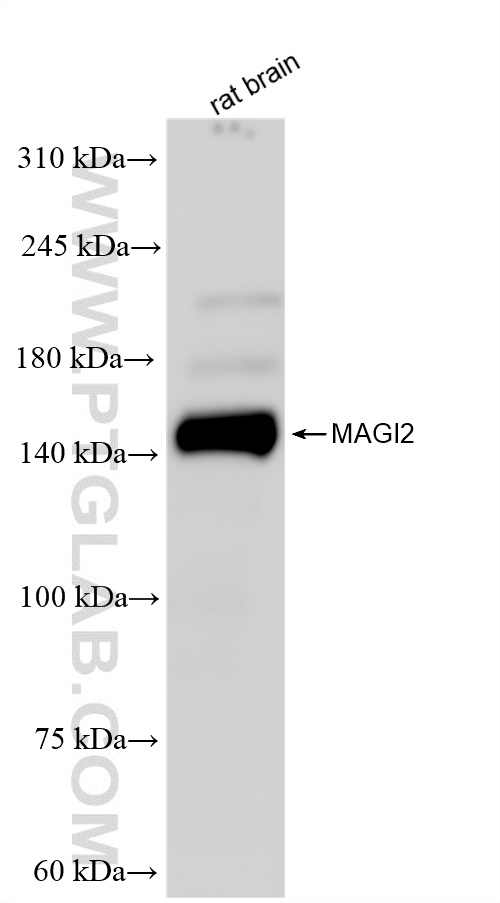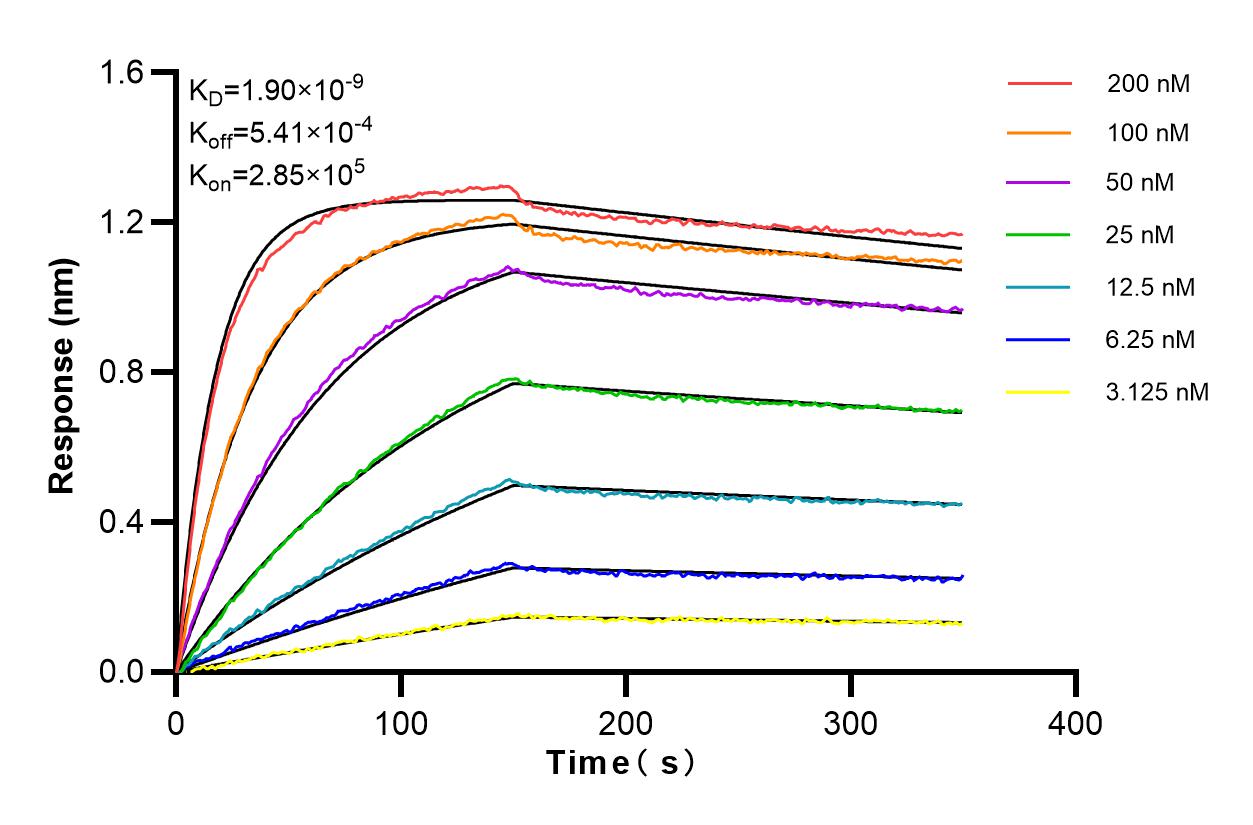验证数据展示
经过测试的应用
| Positive WB detected in | rat brain tissue |
推荐稀释比
| 应用 | 推荐稀释比 |
|---|---|
| Western Blot (WB) | WB : 1:2000-1:10000 |
| It is recommended that this reagent should be titrated in each testing system to obtain optimal results. | |
| Sample-dependent, Check data in validation data gallery. | |
产品信息
83561-6-RR targets MAGI2 in WB, ELISA applications and shows reactivity with human, rat samples.
| 经测试应用 | WB, ELISA Application Description |
| 经测试反应性 | human, rat |
| 免疫原 | MAGI2 fusion protein Ag18279 种属同源性预测 |
| 宿主/亚型 | Rabbit / IgG |
| 抗体类别 | Recombinant |
| 产品类型 | Antibody |
| 全称 | membrane associated guanylate kinase, WW and PDZ domain containing 2 |
| 别名 | AIP-1, AIP1, AIP 1, ACVRIP1, ACVRINP1 |
| 计算分子量 | 1455 aa, 159 kDa |
| 观测分子量 | 140-150 kDa |
| GenBank蛋白编号 | BC150277 |
| 基因名称 | MAGI2 |
| Gene ID (NCBI) | 9863 |
| RRID | AB_3671176 |
| 偶联类型 | Unconjugated |
| 形式 | Liquid |
| 纯化方式 | Protein A purfication |
| UNIPROT ID | Q86UL8 |
| 储存缓冲液 | PBS with 0.02% sodium azide and 50% glycerol , pH 7.3 |
| 储存条件 | Store at -20°C. Stable for one year after shipment. Aliquoting is unnecessary for -20oC storage. |
背景介绍
MAGI proteins are scaffolding proteins, belonging to the Membrane-Associated Guanylate Kinase Inverted proteins of the MAGUK family. There are three members of the MAGI subfamily, MAGI-1, MAGI-2, and MAGI-3. They are comprised of 6 PDZ domains, 2 WW domains, and 1 GUK domain. They have been proven to mediate the transport and signal transduction of various G protein-coupled receptors (GPCRs) (PMID: 29625175). The antibody is specific to MAGI2.
实验方案
| Product Specific Protocols | |
|---|---|
| WB protocol for MAGI2 antibody 83561-6-RR | Download protocol |
| Standard Protocols | |
|---|---|
| Click here to view our Standard Protocols |

